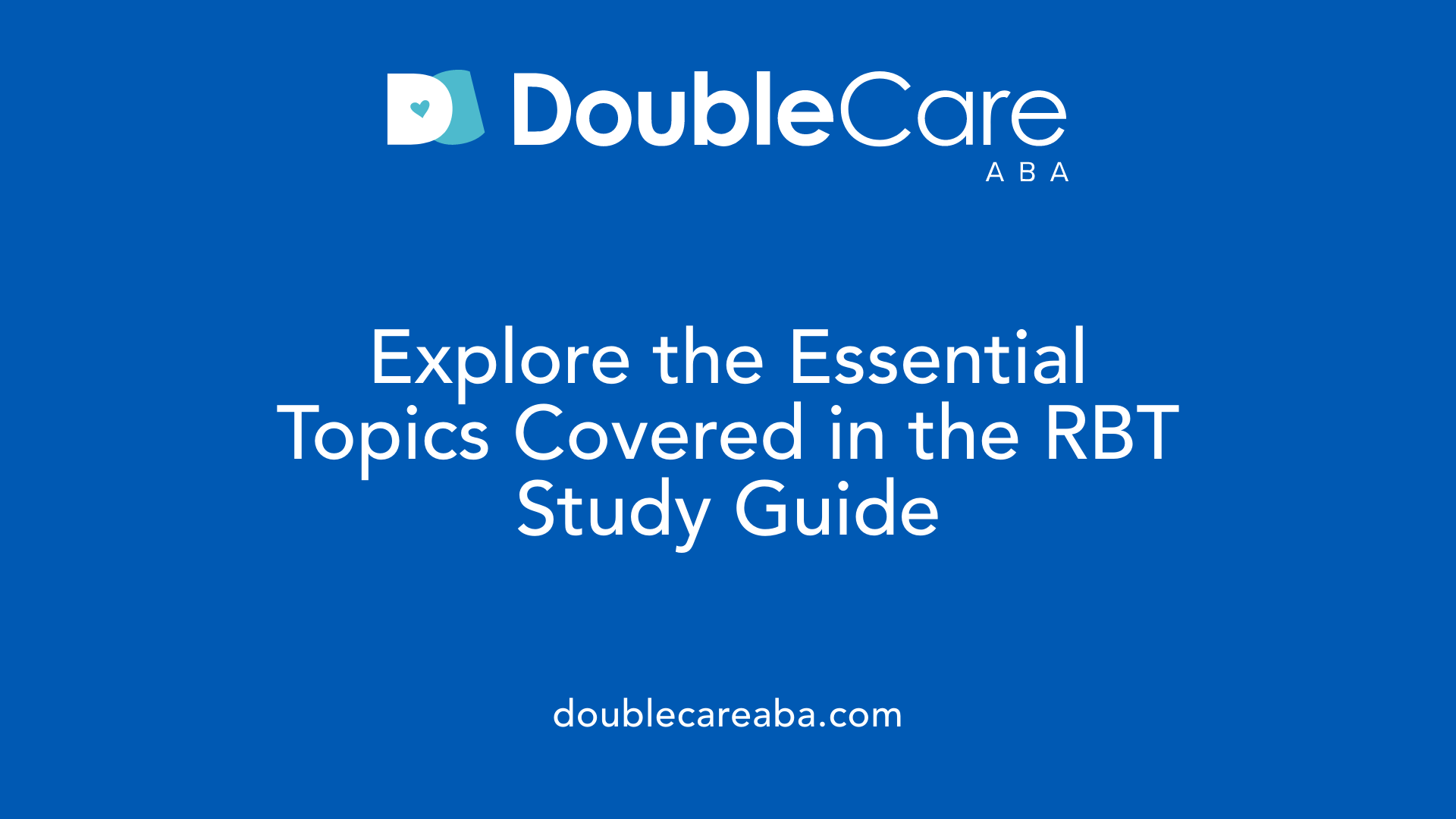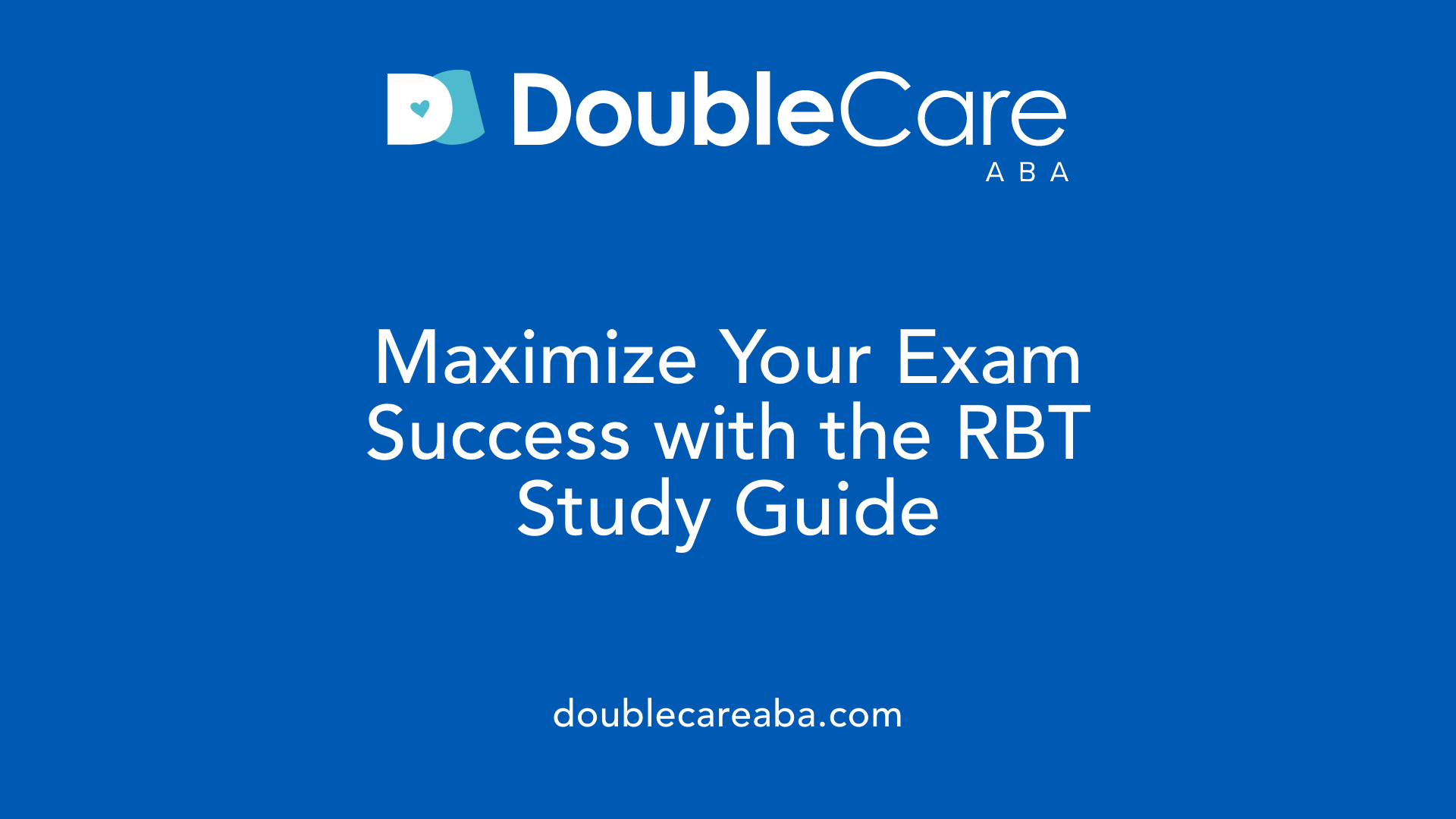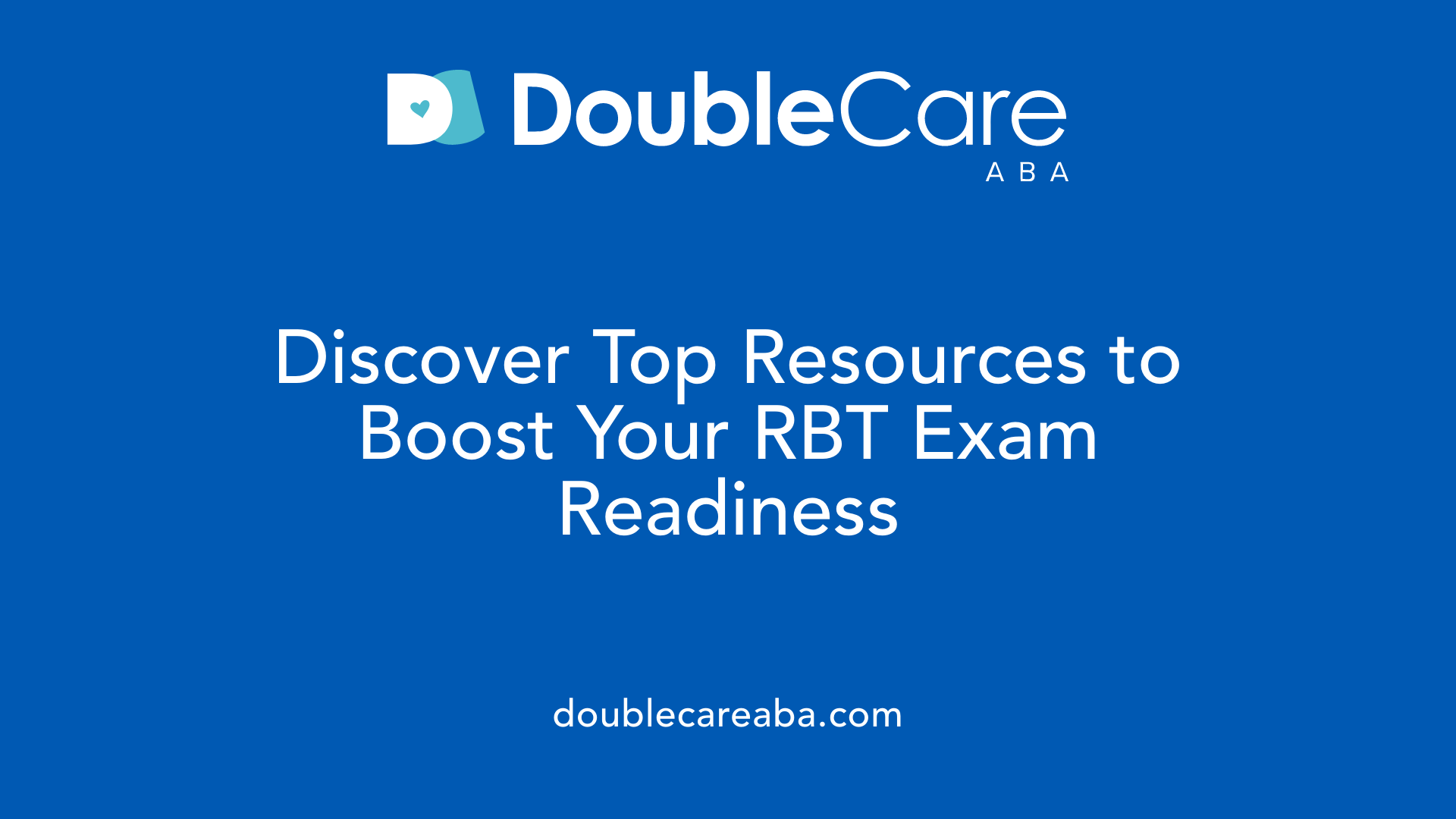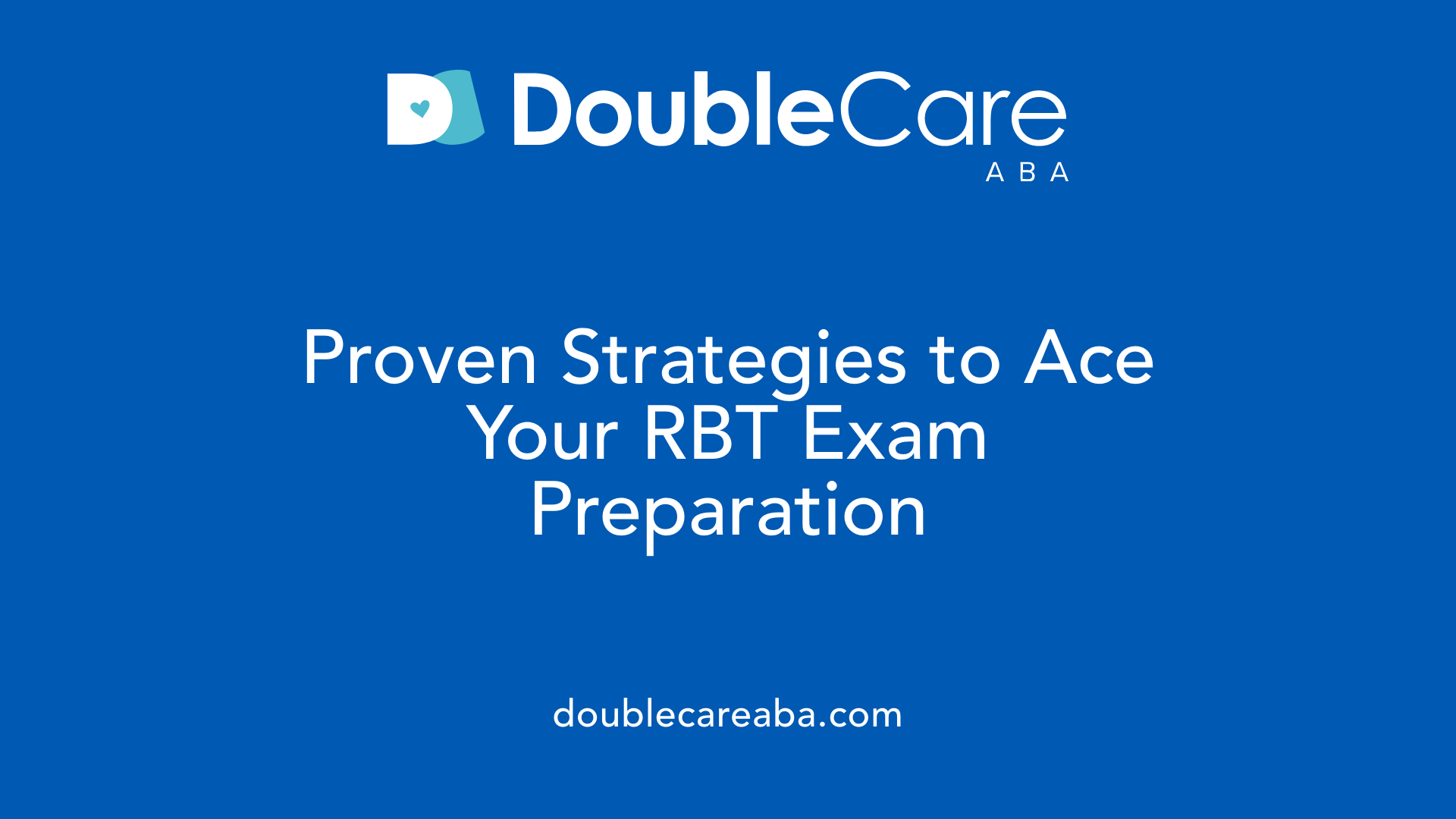Introduction to the RBT Exam and Its Importance
The Registered Behavior Technician (RBT) certification is a vital credential for paraprofessionals working within applied behavior analysis (ABA). Managed by the Behavior Analyst Certification Board (BACB), obtaining this certification opens doors to delivering quality behavior-analytic services under supervision. Preparing effectively for the RBT exam is crucial, and the right study guide can make all the difference. This article explores comprehensive resources, key study strategies, and important details about the exam to help aspiring RBTs succeed.
Core Content Areas of the RBT Study Guide
 The RBT® Exam Study Guide covers a range of important topics to prepare aspiring behavior technicians for the certification exam. It begins with foundational behavior analytic principles, including understanding learning theories, behavior measurement, and data collection techniques. These concepts are essential for accurately assessing client progress and implementing effective interventions.
The RBT® Exam Study Guide covers a range of important topics to prepare aspiring behavior technicians for the certification exam. It begins with foundational behavior analytic principles, including understanding learning theories, behavior measurement, and data collection techniques. These concepts are essential for accurately assessing client progress and implementing effective interventions.
The guide also emphasizes skill acquisition strategies, such as shaping, prompting, chaining, and natural environment teaching. These are critical for helping clients develop new skills in various settings.
Behavior reduction methods are another vital area, covering techniques like differential reinforcement, extinction, and the management of problematic behaviors through positive and evidence-based strategies.
Equally important are the ethical considerations in ABA practice. The study materials highlight client safety, confidentiality, and compliance with the BACB's Code of Ethics, including the importance of supervised, responsible service delivery.
Assessment procedures, including preference assessments and functional behavior assessments, are thoroughly explained. These tools help identify the functions of behavior and guide effective intervention planning.
Furthermore, the guide reviews intervention procedures such as discrete trial training, task analysis, prompts, and natural environment teaching, ensuring candidates understand how to implement strategies that promote skill development.
Professional roles and responsibilities, including the scope of practice for RBTs, supervision requirements, and maintaining certification standards, are also addressed to clarify the role within the broader ABA services.
Candidates preparing for the exam can find resources like practice exams, flashcards, and detailed content review to enhance their understanding and confidence.
| Content Area | Topics Covered | Details |
|---|---|---|
| Behavior Principles | Learning theories, behavior measurement | Fundamental concepts for ABA |
| Data Collection | ABC data, recording techniques | Accurate documentation |
| Skill Acquisition | Chaining, prompting, natural teaching | Techniques for skill development |
| Behavior Reduction | Differential reinforcement, extinction | Managing and reducing undesirable behaviors |
| Ethical Practices | Client safety, confidentiality | HIPAA and ethical guidelines |
| Assessments | Preference and functional assessments | Identifying behavior functions |
| Intervention Strategies | Discrete trials, shaping, prompts | Implementing effective methods |
| Professional Roles | Certification, supervision | Scope of practice and standards |
Reviewing these core areas thoroughly will help ensure readiness for the RBT exam and a successful start in behavior analysis.
How the RBT Study Guide Aids in Exam Preparation

How can the RBT exam study guide assist in preparing for the certification exam?
The RBT exam study guide is an essential resource that streamlines the preparation process. It organizes and emphasizes important content areas like behavior measurement, skill acquisition, documentation, and ethics, helping candidates focus on key topics efficiently. This targeted approach ensures that study efforts are productive and aligned with what is required on the exam.
Additionally, the guide includes practice questions, full-length mock exams with answer keys, and flashcards. These tools reinforce understanding, enhance recall, and help identify areas where further review is needed. Video tutorials and supplementary online resources offered alongside the guide provide visual and interactive learning options, catering to different learning styles.
Creating a structured study plan, based on the guide’s materials, helps candidates stay organized and manage their time effectively. Regular, active learning—such as practicing questions and reviewing concepts—boosts confidence and retention. Familiarizing oneself with the exam format and question types through practice exams reduces anxiety and prepares candidates for the day of testing.
Employing effective study strategies, like studying in distraction-free environments and utilizing online resources, maximizes learning outcomes. The study guide’s current and comprehensive content aligned with BACB standards increases the likelihood of success, making it a valuable tool in passing the RBT exam.
Resources Available for RBT Exam Preparation
 Preparing for the Registered Behavior Technician (RBT) exam requires comprehensive resources to enhance understanding and boost confidence. Many tools are designed specifically to support candidates in their study journey.
Preparing for the Registered Behavior Technician (RBT) exam requires comprehensive resources to enhance understanding and boost confidence. Many tools are designed specifically to support candidates in their study journey.
One of the most effective resources is practice questions and full-length tests. The website, for example, offers downloadable practice exams that simulate the real testing environment, complete with answer keys to review and understand mistakes. These tests help familiarize candidates with the format and pacing of the actual exam.
Flashcards are another popular tool. They are excellent for memorizing key terminology, like 'Multiple Exemplar Training', 'Generalization', or 'Automatic Reinforcement'. Using digital or physical flashcards aids quick review sessions and reinforces concepts related to applied behavior analysis.
Comprehensive study guides and textbooks cover the entire RBT task list, providing structured content that helps learners grasp fundamental principles and procedures. These guides are often supplemented with detailed explanations and real-world examples.
Video tutorials and online courses are increasingly common. They offer visual and auditory learning options, including step-by-step explanations of behavioral concepts and demonstrations of the skills required for the exam and practical application.
Mobile apps tailored for RBT exam prep enable on-the-go practice. They feature quizzes, flashcards, and mock exams, making study flexible and accessible anytime, anywhere.
Additionally, some organizations and educational platforms organize study groups and workshops. These interactive sessions can provide personalized feedback, clarify doubts, and strengthen understanding through discussion.
Below is a comparison of these resources:
| Resource Type | Advantages | Example Features |
|---|---|---|
| Practice Tests | Simulate real exam, identify weak areas | Downloadable exams, timed quizzes |
| Flashcards | Quick review, reinforce terminology | Digital access, portable |
| Study Guides | In-depth concept coverage | Step-by-step explanations |
| Video Tutorials | Visual learning, demonstrations | Topic breakdown, expert lectures |
| Mobile Apps | Flexible practice, on-the-go | Interactive quizzes, notifications |
| Workshops/Study Groups | Personalized support, peer learning | Live discussions, case studies |
For those seeking the best resources for RBT exam prep, searching with queries like 'best resources for RBT exam prep' can help identify top-rated books, courses, and tools tailored to individual learning styles.
Effective Study Tips and Strategies Using the Study Guide
 Preparing for the RBT® exam can feel overwhelming, but employing a strategic approach using the available study resources can boost your confidence and performance.
Preparing for the RBT® exam can feel overwhelming, but employing a strategic approach using the available study resources can boost your confidence and performance.
First, creating a structured study schedule is essential. Break down the comprehensive RBT® task list into manageable sections and set specific, achievable goals for each study session. Incorporating active learning techniques—such as using flashcards, engaging with practice questions, and taking full-length mock exams—helps reinforce your understanding.
Pay close attention to challenging concepts like behavioral interventions, stimulus control, and reinforcement types. Regularly reviewing ethical guidelines, including the RBT Ethics Code, is crucial, as these principles are integral to the exam and everyday practice.
Using diverse resources enhances preparation. Besides the detailed study guide, supplement your study with online videos, practice exams like the 'RBT Practice Exam (75 Questions)' and '2024 RBT Mock Exam #1,' and additional flashcards. Explaining concepts to a peer or study group can deepen understanding and reveal gaps in knowledge.
Implement test-taking strategies such as managing your time efficiently during the exam, carefully reviewing each question, and practicing scenario-based questions to simulate the exam environment. Consistency in study habits—studying regularly rather than cramming—will create a solid foundation of knowledge over time.
In sum, adopting a well-rounded, disciplined approach that combines structured scheduling, active learning, resource diversity, and practical exam strategies will maximize your readiness. This comprehensive method ensures you're not only familiar with content but also confident on exam day.
Preparing for Success: Final Tips and Resources
Achieving RBT certification requires a solid understanding of ABA principles, ethical standards, and exam strategies. The comprehensive RBT Study Guide, along with practice exams, flashcards, and supplemental online resources, provides a robust foundation for your preparation. Developing a consistent study plan, actively engaging with the material, and utilizing available practice tools will boost confidence and improve your chances of passing. Remember to review the latest updates on the RBT Handbook and stay connected with reputable study communities for ongoing support. With dedication and the right resources, you can confidently approach the RBT exam and advance your career in behavior analysis.
References
- RBT Practice Exam Questions
- Free RBT Practice Exam (updated 2025) - Mometrix
- RBT Exam Prep Flashcards - Quizlet
- Registered Behavior Technician (RBT) - BACB
- Registered Behavior Technician (RBT) - BACB
- Preparing for the RBT Exam: Resources and Strategies for Success
- Registered Behavior Technician (RBT) - DoD COOL
- RBT Certification Requirements - Pediatric Therapeutic Services















